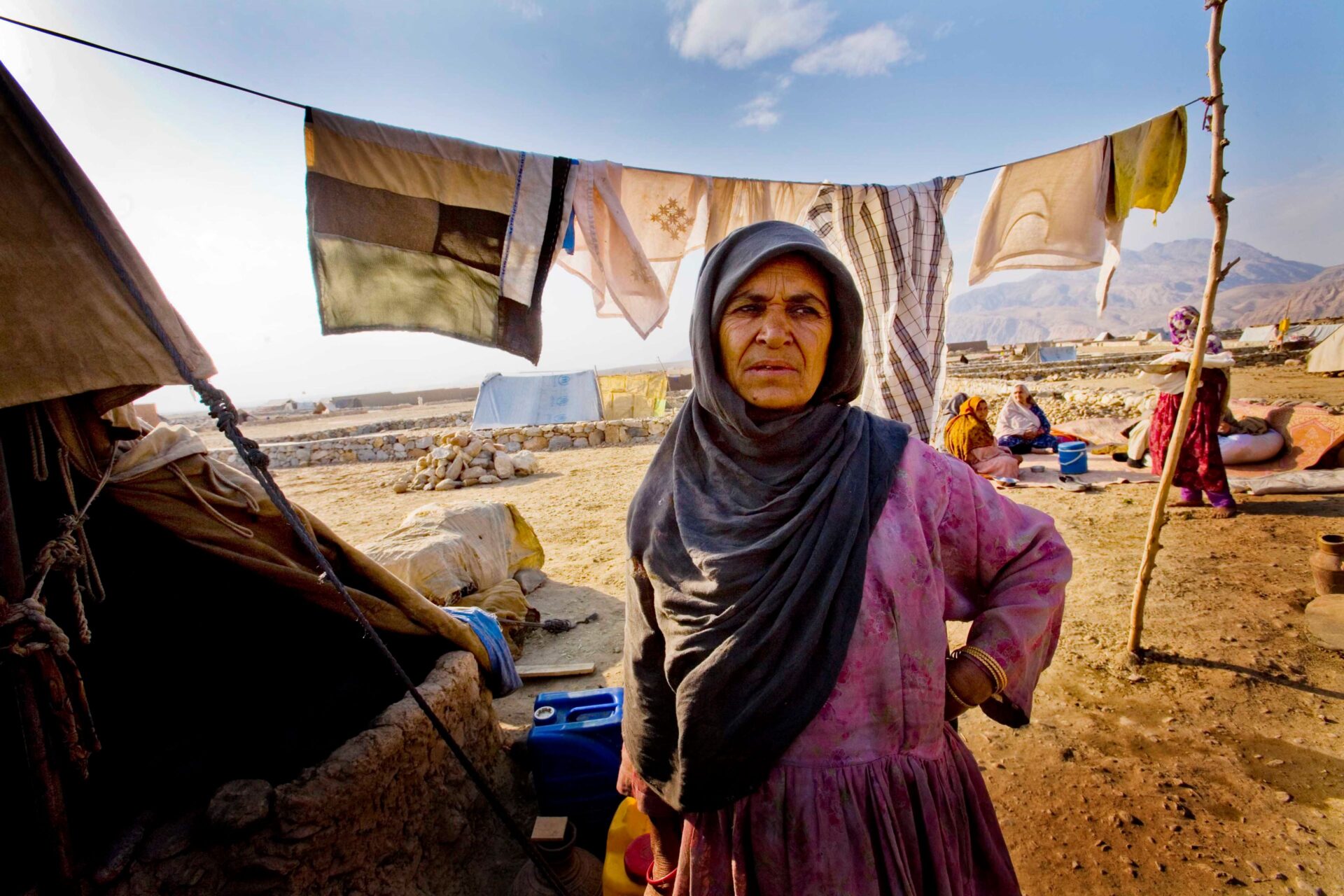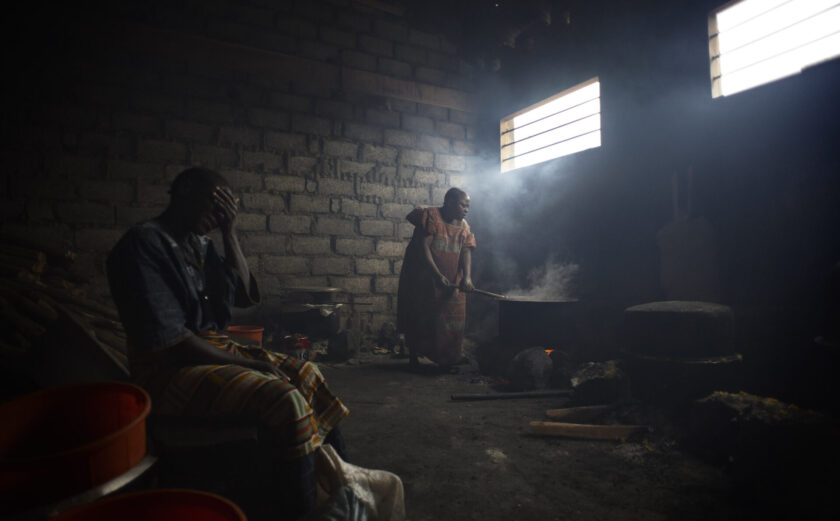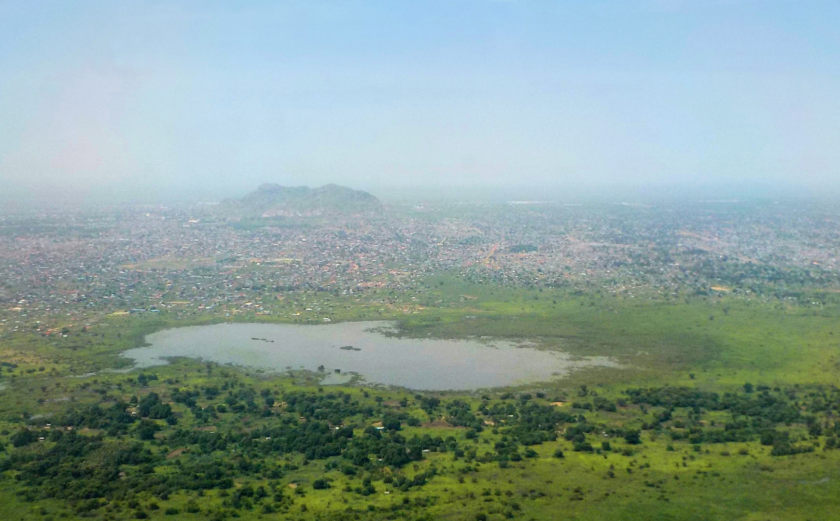
Afghans in Pakistan: Forced Displacement and an Uncertain Future
Afghanistan Blog Series
After the Taliban became Afghanistan’s de-facto authorities in August 2021, over 600,000 displaced Afghans sought refuge in Pakistan, joining 1.3 million Afghan refugees already in the country.
On October 3, 2023, the government of Pakistan announced the “Illegal Foreigners’ Repatriation Plan” requiring all undocumented immigrants, including 1.4 million Afghans, to leave the country within 30 days or be subject to arrest, detention, and deportation. This announcement came despite a non-return advisory issued by the United Nations High Commissioner for Refugees (UNHCR) calling for governments to suspend the forcible return of Afghan nationals due to unsafe conditions in Afghanistan.
This deportation effort has been carried out without adequate regard for documentation status or international customary law, and in the last 10 months, over 650,000 Afghans have been compelled to leave Pakistan and repatriate to Taliban-controlled Afghanistan.
The international community needs to take action to support Afghan refugees being deported from Pakistan. Humanitarian organizations have expanded and adapted programming to respond to the substantial needs of deported Afghans but require additional funding and operational support to continue their life-sustaining work.
Pakistan’s Repatriation Plan
At the time the Illegal Foreigners’ Repatriation Plan was announced, humanitarian needs in Afghanistan were skyrocketing and the economy was in turmoil. Nevertheless, fearing arrest and experiencing heightened hostility and harassment, hundreds of thousands of Afghans left Pakistan within the month.
Though the first phase of the Repatriation Plan targeted only undocumented Afghans, in April 2024, Pakistan expanded those targeted for deportation to include people holding Afghan Citizen Cards and Proof of Registration Cards (PoR), documentation issued by the government of Pakistan providing temporary legal stay.
On July 10, 2024, following a visit from Filippo Grandi, the head of UNHCR, Pakistan offered a reprieve for PoR holders, allowing them to legally stay in Pakistan until June 30, 2025. While this development is an important step, the sudden policy change further highlights the uncertainty Afghans face in Pakistan and underscores how even those with official documentation are subject to shifting edicts with little recourse. Furthermore, as this policy only applies to PoR holders, millions of vulnerable Afghans remain at risk while struggling to navigate a process that lacks transparency and accountability.
The Plight of Afghan Returnees
Deported Afghans are often barred from leaving Pakistan with cash or valuables and face an untenable situation upon their arrival in Afghanistan. Many returnees become internally displaced with little access to long-term shelter, healthcare, and work opportunities. A survey of families who returned to Afghanistan found that 99% did not have enough food for the next month and two-thirds of children were not enrolled in school, primarily due to lack of identity documents.
In this uncertain and challenging environment, humanitarian organizations have been steadfast in their support of returning Afghan refugees. Within days of the Repatriation Plan announcement, aid agencies adapted programming to meet growing needs along the Afghanistan-Pakistan border, preparing for the anticipated influx of displaced Afghans.
Humanitarians across the U.N. and civil society, including many InterAction Members, deployed mobile health clinics, nutritional services, and employment assistance in addition to developing shelter sites to safely accommodate returnees. Additionally, because over half of returnees are children, humanitarian organizations invested in education at the border, adapting existing programs to accommodate children who had never lived in the country and might not know the local languages of Pashto or Dari.
A Path Forward
The humanitarian response has been a critical lifeline for hundreds of thousands of returning refugees, but with humanitarian budgets already spread thin, the situation has become increasingly dire. In the face of rapidly mounting demands on programmatic resources, Afghanistan’s Humanitarian Needs and Response Plan is only 20% funded, facing a shortfall of almost $2.5 billion. Donors must recommit to supporting Afghan returnees and their host communities, recognizing the compounded effects of prolonged displacement, premature returns, and recent natural disasters. A failure to do so will result in reduced humanitarian operations, leaving millions of at-risk Afghans without life-saving assistance.
Along with increased financial support, the international community should encourage the government of Pakistan to uphold the human rights of displaced Afghans seeking safety within their borders. The Pakistani Government’s actions must adhere to international legal standards including the principle of non-refoulement, which guarantees that no person should be returned to a country where their life or freedom is threatened. Furthermore, governments, civil society, and the U.N. must hold Pakistan accountable to their human rights responsibilities under the International Covenant on Civil and Political Rights and the Convention Against Torture, and be vocal in support of the safety of refugees. This includes calling upon the government of Pakistan to halt the Repatriation Plan and require that any return of displaced Afghans is transparent, accountable, and consistent with international law.
The global community must not allow the needs of displaced Afghans to be forgotten. In the meantime, humanitarians will continue to work tirelessly to protect and support those that are unlawfully deported.









